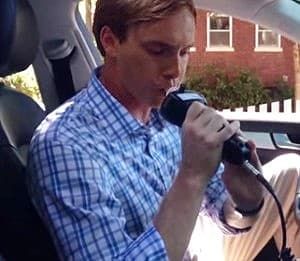 If you follow drunk driving issues – which have been in the news more and more lately – you might have heard of 24/7 sobriety programs. A new federal law makes it easier for states and municipalities to employ these programs as a measure to combat drunk driving. Incentive grants are designed to encourage the adoption of 24/7 alcohol monitoring as a weapon in the arsenal of anti-DUI measures.
If you follow drunk driving issues – which have been in the news more and more lately – you might have heard of 24/7 sobriety programs. A new federal law makes it easier for states and municipalities to employ these programs as a measure to combat drunk driving. Incentive grants are designed to encourage the adoption of 24/7 alcohol monitoring as a weapon in the arsenal of anti-DUI measures.
Those measures already include ignition interlocks –car breathalyzer devices which prevent a vehicle from starting if the driver has been drinking.
The question is: should 24/7 be considered a replacement for ignition interlocks? The answer is no.
What 24/7 Alcohol Monitoring Is
A 24/7 sobriety program requires offenders to check in at a facility and have their breath tested for alcohol, usually twice a day, morning and evening. If the offender tests positive, or fails to appear for the test, the consequences are immediate: often this is a short jail term (one or two days).
The advantage, as advocates of 24/7 programs see it, is that the program addresses the underlying alcohol problem, rather than just the drunk driving. And the theory of it – that a smaller but swifter consequence (short jail term) works better than a larger but more remote one (possibility of greater punishment down the line) – has merit.
What 24/7 Cannot Do
The main problem with 24/7 programs is that they cannot prevent the one thing that led to the situation in the first place: drunk driving. Lapses are common in any recovery program. With an ignition interlock, an offender who drinks will still be prevented from driving. He or she will not be endangering the public.
The same is not true for 24/7 programs. A person can pass a breath test at 6pm, go drinking at 7 and drive at 8. Any lapse in their program leads immediately to the danger of drunk driving. The same is not true of ignition interlocks, which are designed to prevent intoxicated people from operating vehicles.
Where MADD Stands
Mothers Against Drunk Driving (MADD), as well as other law enforcement agencies and road safety advocates, are staunch in their support of ignition interlocks as the vital means of breaking the chain between drinker and driver. A recent report by MADD made a compelling case for interlock devices, noting that since the devices were widely adopted, they have prevented 1.77 million attempts to drive drunk. The report states:
MADD is confident that an ignition interlock is the safest, most effective way to stop a drunk driver from becoming a repeat offender.
And that is the latest word. 24/7 is a useful tool for helping alcoholics in the recovery process, but it does not perform the essential duty that protects the public, by keeping intoxicated people in the parking lot or driveway, instead of on our roads.
